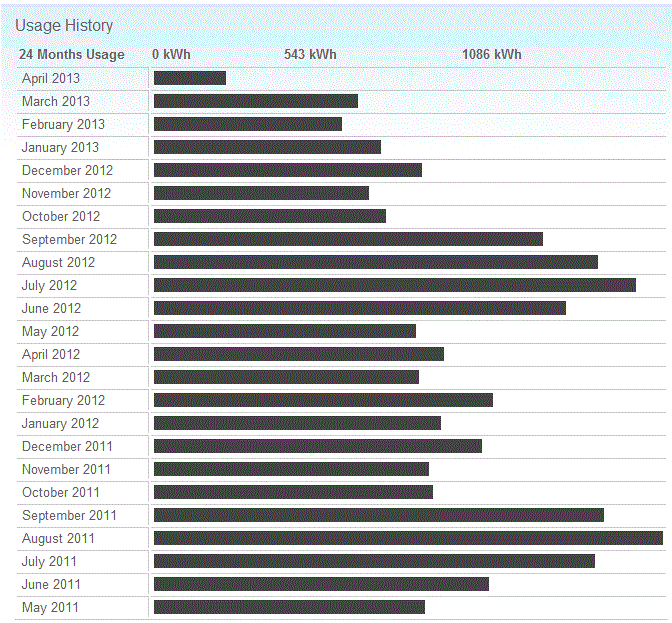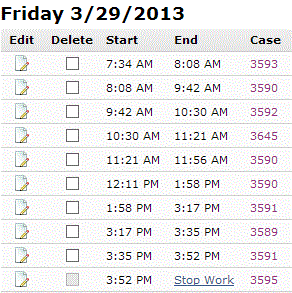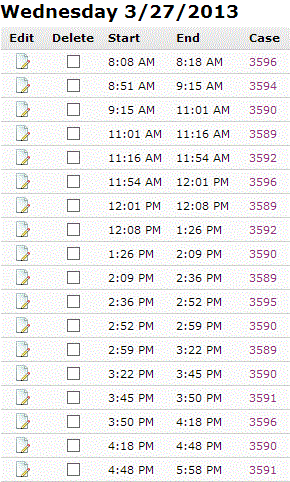...you know it's going to be bad. And it really is:
Passed in 2012 after a 60 Minutes report on insider trading practices in Congress, the STOCK Act banned members of Congress and senior executive and legislative branch officials from trading based on government knowledge. To give the ban teeth, the law directed that many of these officials' financial disclosure forms be posted online and their contents placed into public databases. However, in March, a report ordered by Congress found that airing this information on the Internet could put public servants and national security at risk. The report urged that the database, and the public disclosure for everyone but members of Congress and the highest-ranking executive branch officials -- measures that had never been implemented -- be thrown out.
The government sprang into action: last week, both chambers of Congress unanimously agreed to adopt the report's recommendations. Days later, Obama signed the changes into law.
Bluntest of all was Bruce Schneier, a leading security technologist and cryptographer. "They put them personally at risk by holding them accountable," Schneier said of the impact of disclosure rules on Congress members and DC staffers. "That's why they repealed it. The national security bit is bullshit you're supposed to repeat." (Three of the four experts we consulted opted for the same term of choice.)
As Schneier said, "There was a security risk, but it was not a national security risk. It was a personal Congressperson risk." And that was enough to stymie transparency.
One commenter on the original CRJ article points out, "Right, they're concerned about people getting their personal info online...as they pass CISPA."
This was a bipartisan effort, by the way.
On March 10th, I completed moving Weather Now to Windows Azure, and shut down the Inner Drive Technology International Data Center. I had already received my lowest electric bill ever for this location, thanks to a 25% rate reduction negotiated by the City.
Earlier this week I got my March electric bill, for my electricity use between March 8th and April 7th. Take a look:

My electricity use in March 2013 was just 26% of my March 2012 use (243 kw/h in 2013 against 933 kw/h in 2012). The bill was 80% lower, too.
My telecommunications bill also went down considerably. After I have complete data of these cost differences mid-May, I'll post a full rundown of how much moving to Azure saves me every month.
In my profession, I get to sit at Peet's Coffee at 6:30am and watch action-packed videos like this:
I know what you're thinking: "slow down, tigerblood. Slow down."
I'm also pushing a new build of customer software up to production, and waiting for my coffee to kick in.
At least I'm not blowing three runs in the 10th with a damned balk, like other people I could name.
Only after passing through the TSA checkpoint at O'Hare just now did I realize I've forgotten to bring a laptop charger. Fortunately my folks have a Dell at home. Otherwise I wouldn't be able to do any work for four whole days. How awful would that be?
Of course, there's always my tablet, my phone, their computers and iPad...
How much again is a ticket to Sint Maarten?
Via Sullivan, a new Google Chrome plugin that allows you to embed secret messages in photos you post on Facebook:
That’s the idea behind Secretbook, a browser extension released this week by 21-year-old Oxford University computer science student and former Google intern Owen-Campbell Moore. With the extension, anyone — you, your sister, a terrorist — could share messages hidden in JPEG images uploaded to Facebook without the prying eyes of the company, the government or anyone else noticing or figuring out what the messages say. The only way to unlock them is through a password you create.
The extension is only available for the Google Chrome browser — Campbell-Moore cites its developer tools and popularity — and the messages are restricted to 140 characters. Less certain is what Facebook thinks; a spokesman declined to comment. But it’s still the first time anyone’s managed to figure out how to automate digital steganography — the practice of concealing messages inside computer files — through Facebook, the world’s biggest social media platform. Unlike cryptography, which uses ciphertext to encrypt messages, steganographic messages are simply hidden where no one would think to look.
Calling Bruce Schneier...
Back in November, Chicagoans voted to buy electricity in the aggregate from Integrys rather than the quasi-public utility Exelon. As predicted, the big savings only lasted a few months:
And Chicago, where residents saw their first electric-bill savings this month under a 5.42-cent-per-kilowatt-hour deal completed in December with Integrys, will see its energy savings shaved to just 2 percent.
ComEd's new price is not yet official. But utility representatives have filed their new energy price of 4.6 cents per kilowatt-hour with the ICC and have told the commission they expect forthcoming transmission charges to be about another 0.95 cents per kilowatt-hour. That will make the ComEd "price to compare" cited by competing suppliers when marketing their offerings about 5.55 cents.
That said, between the new Integrys rate that hit me on my last electricity bill, and moving to the cloud, my March bill was only 54% of my average bill from 2009 to 2012. So ComEd is lowering rates too? Good. It'll still be higher than Integrys.
Not only does my time evaporate into multiple projects these days, but the number of context switches I've experienced over the past few days hurts. Here's today's timesheet:

Yeah, but I shoot with this hand. I worked from home Wednesday so that I could jam on some documentation. How'd that work out?

Blogging, by the way, helps me switch contexts. I think.
Just a quick note about debugging. I just spent about 30 minutes tracking down a bug that caused a client to get invoiced for -18 hours of premium time and 1.12 days of regular time.
The basic problem is that an appointment can begin and end at any time, but from 6pm to 8am, an appointment costs more per hour than during business hours. This particular appointment started at 5pm and went until midnight, which should be 6 hours of premium and 1 hour of regular.
The bottom line: I had unit tests, which automatically tested a variety of start and end times across all time zones (to ensure that local time always prevailed over UTC), including:
- Starts before close, finishes after close before midnight
- Starts before close, finishes after midnight before opening
- Starts before close, finishes after next opening
- Starts after close, finishes before midnight
- Starts after close, finishes after midnight before opening
- Starts after close, finishes after next opening
- ...
Notice that I never tested what happened when the appointment ended at midnight.
The fix was a single equals sign, as in:
- if (localEnd > midnight & local <= localOpenAtEnd)
+ if (localEnd >= midnight & local <= localOpenAtEnd)
Nicely done, Braverman. Nicely done.
Too much going on:
Now, I will go back to drafting documentation while I wait for AT&T to reconfigure my DSL and kill my landline. I've had a POTS ("plain old telephone service") twisted-pair line longer than most people on earth have been alive. After today, no longer. I don't think I'll miss it, either. I only have it because I have a business-class DSL, which I don't need anymore, and the only people who call it want money from me.
Odd that I'm finding this out through the Chicago Tribune:
Amazon.com has introduced a way for users to quickly save and send news articles as well as other items to their Kindle devices for later, off-line reading.
The new feature can be added by users in a variety of ways. Amazon has made it possible for users to send items to their Kindles through Web browser extensions for Google Chrome and Firefox, as a feature that can be installed on Macs or PCs, from Google Android mobile devices, or from users' emails.
Cool. Look for the button to appear on The Daily Parker very soon.
Now that I can send directly to Kindle, and after having Instapaper crash frequently on my Android device, I might switch. Though this does underscore the risks start-ups take when they develop relatively simple ideas into software. Other, larger companies can kill you.